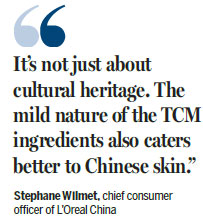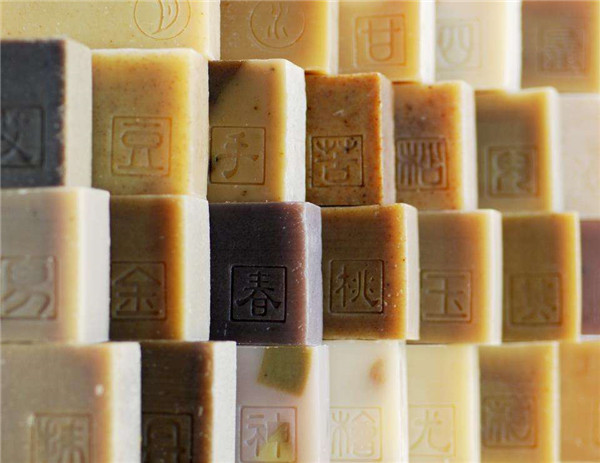Beauty of the ages
By Sun Yuanqing ( China Daily ) Updated: 2017-05-13 07:26:58
Apart from the core consumers aged from 23 to 28, those under 22 are increasing rapidly, now accounting for about one fourth of the consumers on Tmall, the online marketplace. Men are also paying more attention to skin care than before, the Alibaba and CBN Data report said.
Yue Sai, the cosmetic brand that belongs to the French company L'Oreal, has used TCM in its products since 1992. Most of its customers are in their 30s and 40s, but the ranks of users in their 20s are swelling, says Stephane Wilmet, chief consumer officer of L'Oreal China. Indeed, more than half its online store customers are in their 20s, says Wilmet, previously Yue Sai's brand general manger.
"For a lot of people, Chinese beauty reminds them of tradition rather than fashion. Young people may at first feel TCM is not for them, but we have transformed the products in terms of marketing, packaging and product range."
The brand combines TCM ingredients such as lingzhi mushroom and ginseng with modern technology to develop products tailored for the Asian skin.
"It's not just about cultural heritage," Wilmet says. "The mild nature of the TCM ingredients also caters better to Chinese skin."
As many as 80 percent of its customers come from second-tier and third-tier cities, and they are becoming more independently minded, Wilmet says, knowing which products best suit them rather than simply following the crowd.
Brands younger than Yue Sai are now following suit, looking to capitalize on the power of TCM.
Yuan Soap, a Taiwan brand that specializes in handmade soap, uses Chinese herbs, olive oil and spring water to make skin care products. It takes about 60 days to produce a new batch, it says, adhering strictly to an environmentally friendly approach.
|
|
|
|
|
|
|
|



























 Raymond Zhou:
Raymond Zhou: Pauline D Loh:
Pauline D Loh: Hot Pot
Hot Pot Eco China
Eco China China Dream
China Dream China Face
China Face






